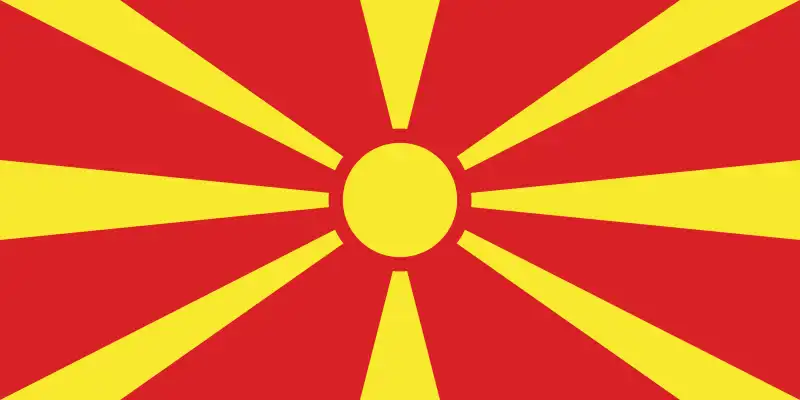Statistical Data for North Macedonia
Situated in Southeast Europe on the Balkan Peninsula, North Macedonia is a landlocked nation. It shares borders with Greece to the south, Albania to the west, Bulgaria to the east, Serbia to the north. The country's topography is varied, with fertile valleys in the center and east and hilly areas in the west and southeast.
North Macedonia is a relatively tiny country in terms of population, with about 2 million people living there that share together a great North Macedonia health profile. The bulk of the population is Macedonian, with sizable minorities consisting of Albanians, Turks, and Roma. With most people residing in metropolitan regions like Skopje, the nation's capital, and other significant cities like Bitola and Ohrid, the country has a comparatively low population density.
Land of North Macedonia
The land of North Macedonia is rich in culture, history, and scenic beauty. This nation provides tourists with a wide variety of activities, from historic archaeological sites to stunning mountain ranges. North Macedonia's architecture, food, and customs all exhibit a distinctive fusion of Eastern and Western elements.
North Macedonia's rich cultural legacy is among its most remarkable features. The historic city of Ohrid and the magnificent monasteries of Studenica are only two of the many UNESCO World Heritage sites in the nation. The region's museums, galleries, and historic sites allow visitors to learn about its rich past.
North Macedonia has stunning natural scenery in addition to its cultural attractions. Outdoor enthusiasts will have lots to discover in this stunning country, from the untamed heights of Mount Korab to the glistening waters of Lake Ohrid. Travelers can enjoy a genuinely unique and amazing experience in North Macedonia, whether they choose to hike in the mountains, unwind on the beaches, or taste regional wines in the vineyards.
Climate of North Macedonia
Because of its varied topography and closeness to other geographical areas, North Macedonia has a varied climate. In the north of the country, the climate is continental, with scorching summers and frigid winters with large temperature swings. The climate is more Mediterranean in the south, with hot, dry summers and warm, rainy winters. The alpine climate of North Macedonia's mountainous regions is characterized by year-round higher precipitation and colder temperatures. It also contributes to a proactive approach in managing the North Macedonia disease burden, ensuring that health systems remain adaptable to environmental conditions.
North Macedonia's landlocked location, which restricts the sea's ability to moderate temperature extremes, is one of the elements influencing its climate. Because of its location at the intersection of many air masses from the Mediterranean, continental Europe, and the Balkans, the nation also experiences a variety of weather patterns. Residents and tourists should be ready for sudden fluctuations in temperature and precipitation because these elements contribute to the variety of weather conditions throughout North Macedonia.
Languages of North Macedonia
The significant language diversity of North Macedonia is a reflection of its intricate past and rich cultural legacy. The majority of people in North Macedonia speak Macedonian, which is the country's official language. The South Slavic language of Macedonian shares strong kinship with Serbian and Bulgarian. Because of the sizable Albanian minority, several parts of the country also recognize Albanian as an official language in addition to Macedonian.
Other minority languages spoken in North Macedonia include Turkish, Romani, and Serbian, in addition to Macedonian and Albanian. Smaller populations within the nation speak these languages, which add to North Macedonia's linguistic diversity. An essential component of North Macedonia's identity and cultural legacy is the promotion and preservation of these minority languages.
To sum up, North Macedonia's languages are essential to forming the nation's identity and cultural landscape. The nation's linguistic diversity is a reflection of its complicated past and a reminder of the different forces that have influenced North Macedonia over the ages. North Macedonia is able to embrace its multicultural heritage and foster inclusivity and togetherness among its diverse population by acknowledging and appreciating its language diversity.
Demographic trends
There are notable demographic trends in North Macedonia that are influencing the population dynamics of the country. The aging of the population, with an increasing proportion of older people compared to younger people, is one of the major trends that require more concentration on North Macedonia health service coverage. An aging population structure is the result of this change, which is ascribed to elements like falling birth rates and rising life expectancy.
Urbanization is another significant demographic trend in North Macedonia, as more people relocate from rural to urban regions in pursuit of higher living standards and greater economic possibilities. Due to this tendency, more people are living in metropolitan areas, which presents problems including more strain on the infrastructure and North Macedonia healthcare system services provided by these cities.
Understanding these demographic trends is crucial for policymakers and planners in North Macedonia to effectively address the challenges and opportunities associated with an aging population and urbanization. By developing North Macedonia public health programs and policies that cater to the needs of the changing population structure, North Macedonia ensures sustainable development and improves the overall well-being of its citizens.
North Macedonia interesting facts
North Macedonia is renowned for its breathtaking natural beauty in addition to its rich cultural legacy. The stunning Lake Ohrid, one of the oldest and deepest lakes in Europe, is one of the country's many gorgeous landscapes. A UNESCO World Heritage site, Lake Ohrid is a well-liked vacation spot for those looking for outdoor experiences because of its pristine waters and neighboring mountains.
In addition, North Macedonia boasts a rich archeological past, with historic locations like the ruins of Stobi and Heraclea Lyncestis providing insight into the nation's past. These remarkably intact artifacts offer important new perspectives on the civilizations that had flourished in this area. In conclusion, tourists can explore and enjoy a variety of historical, natural, and cultural treasures in North Macedonia.
